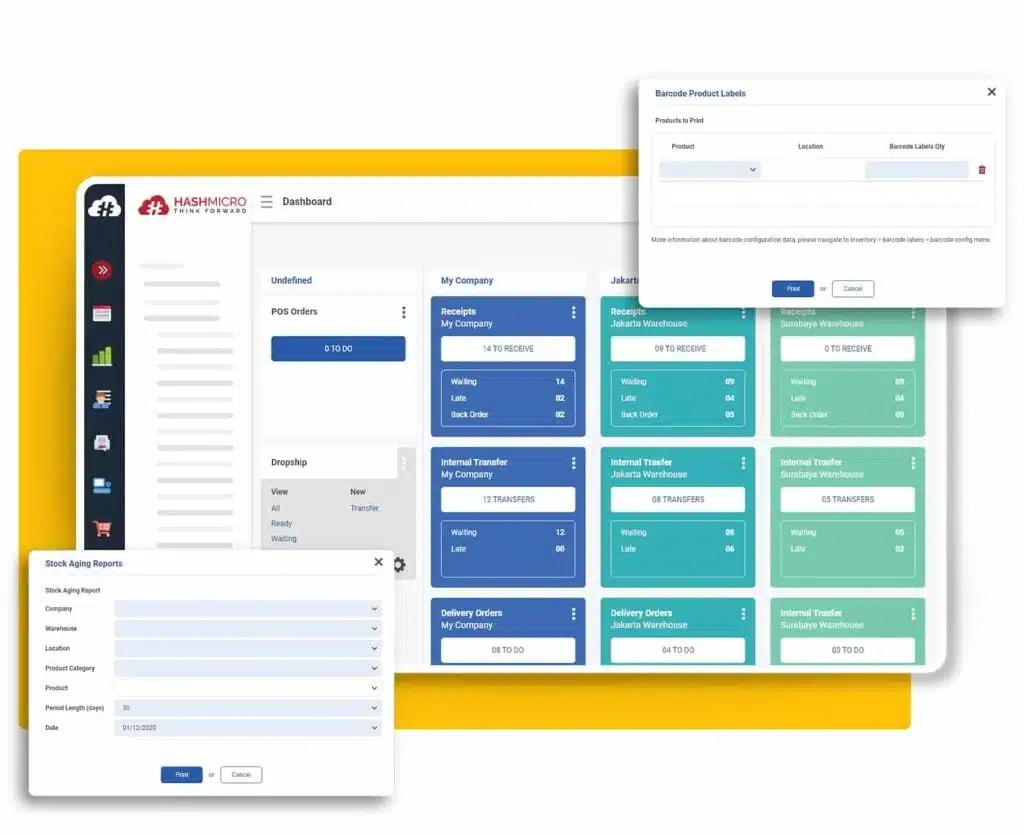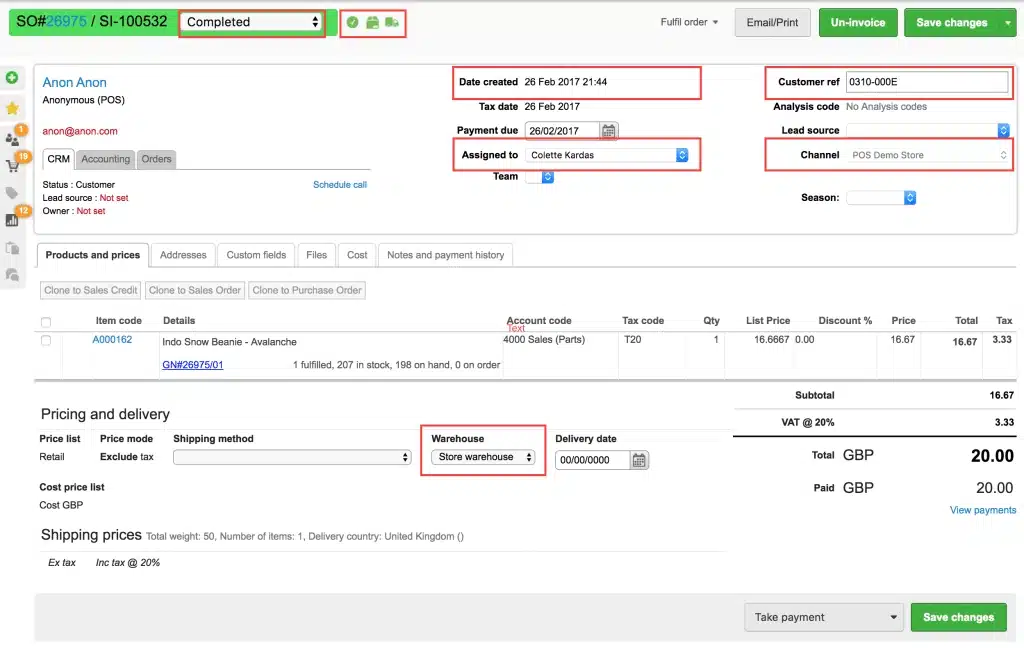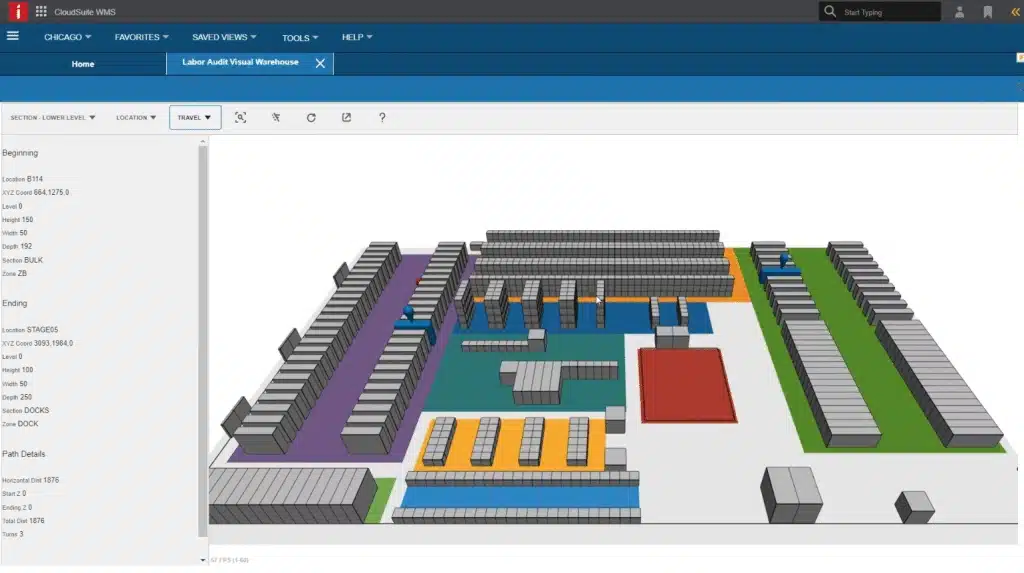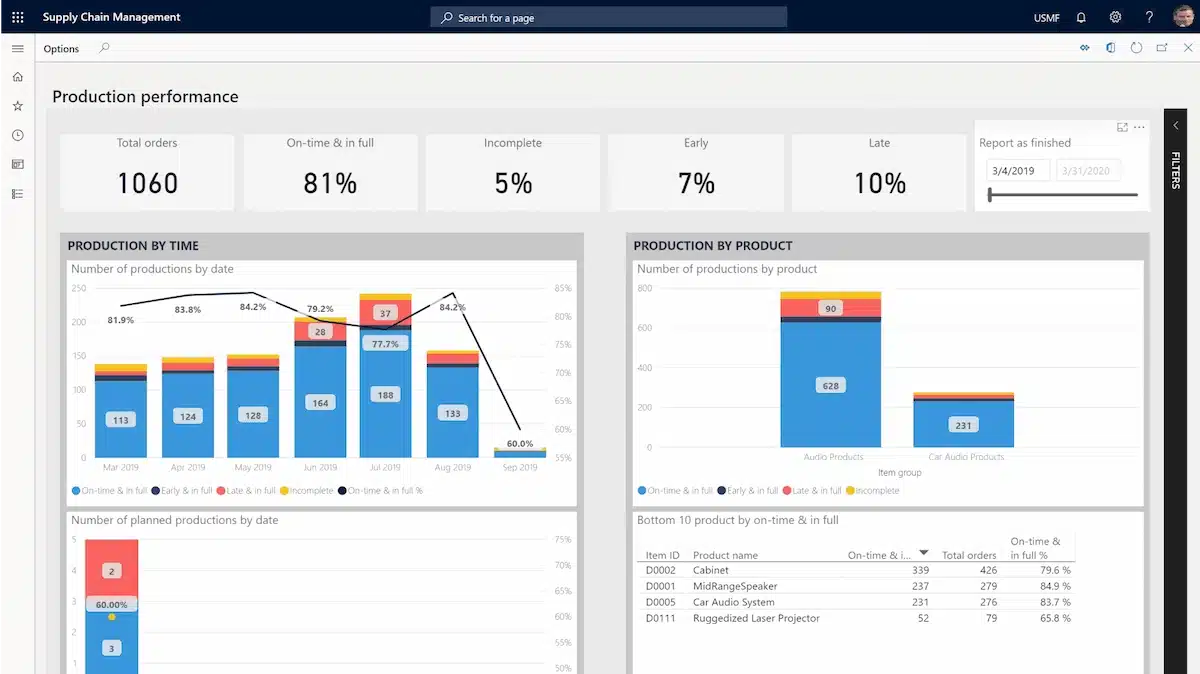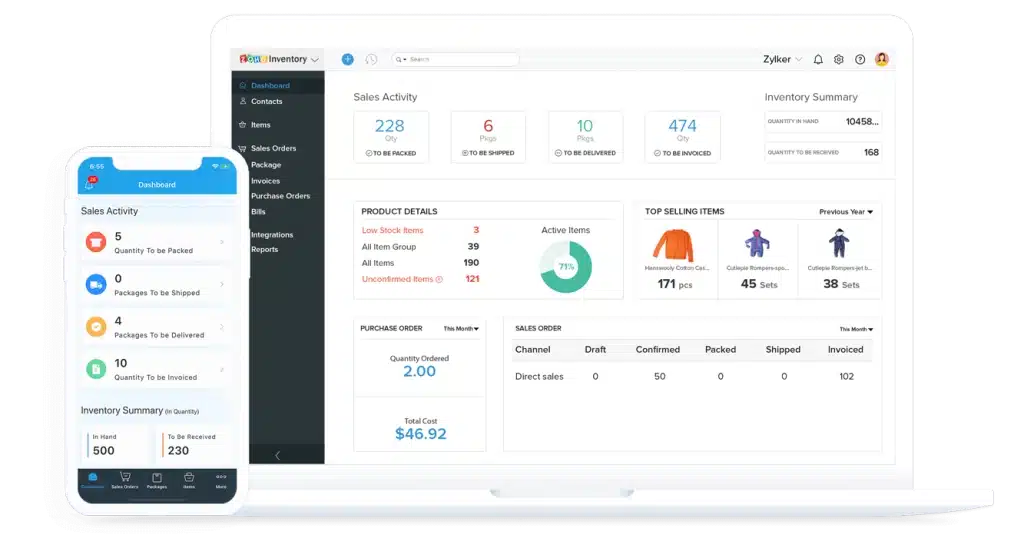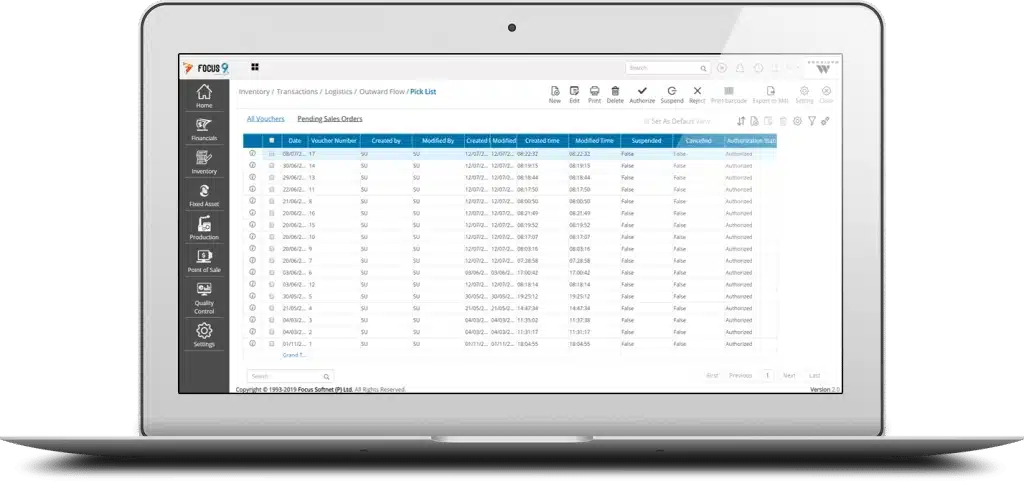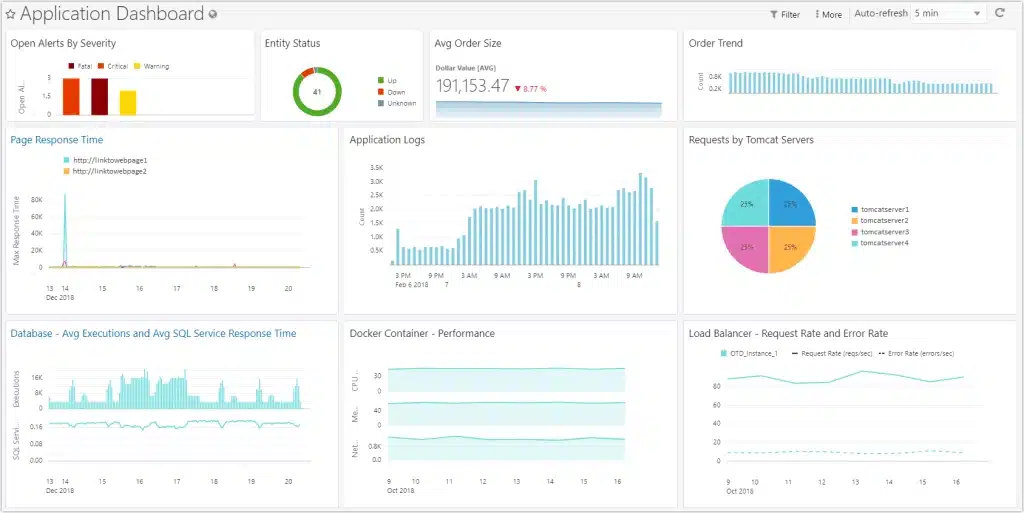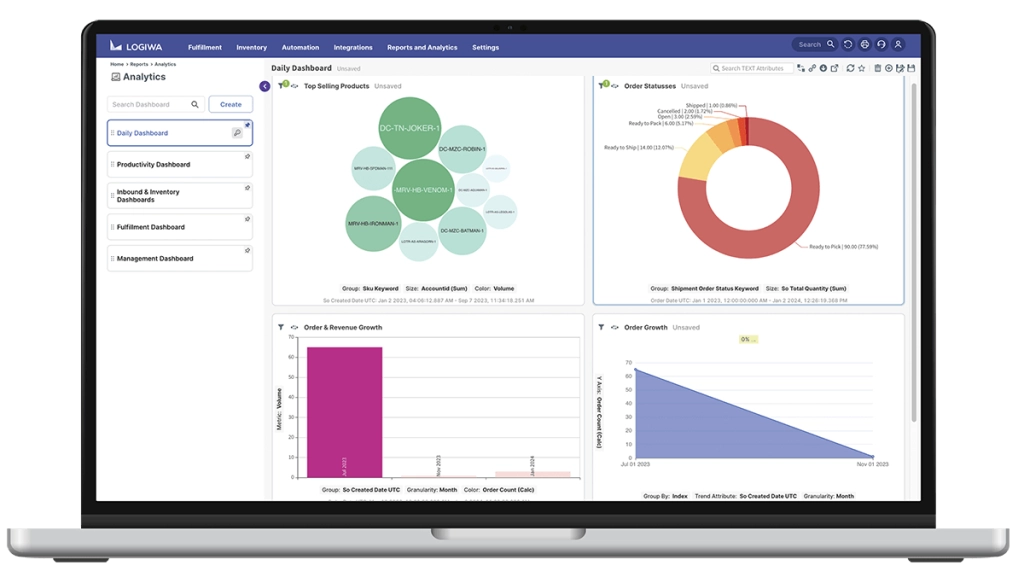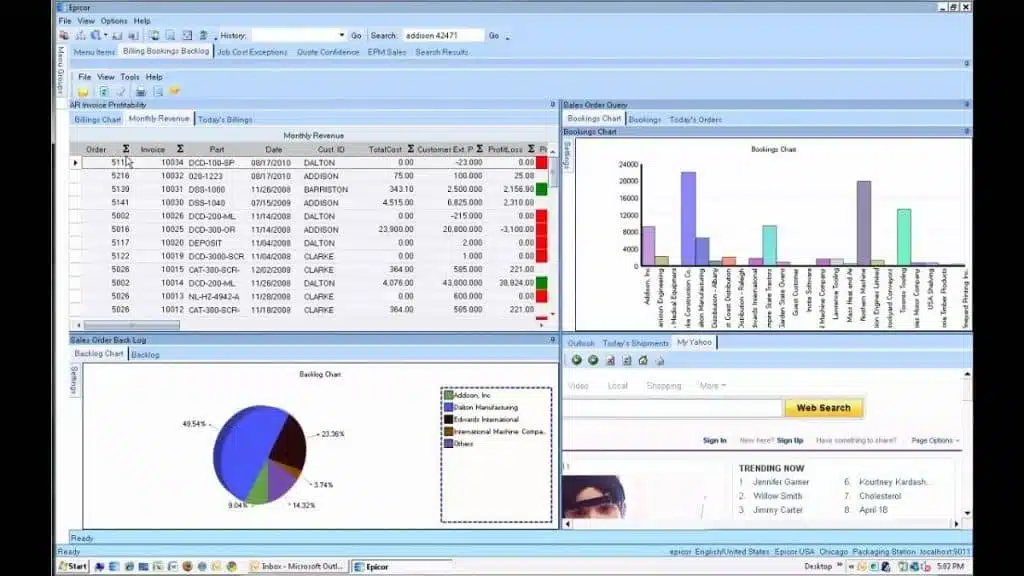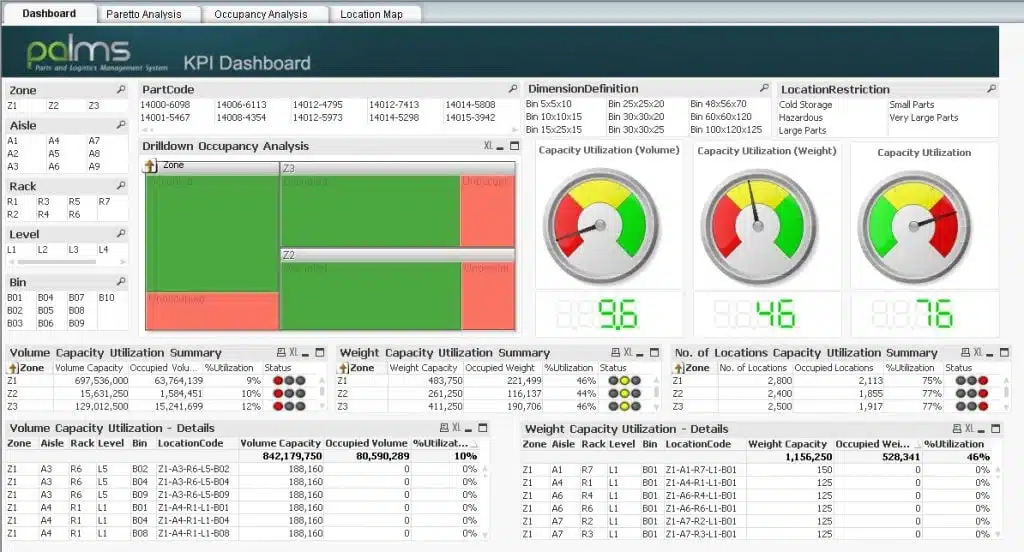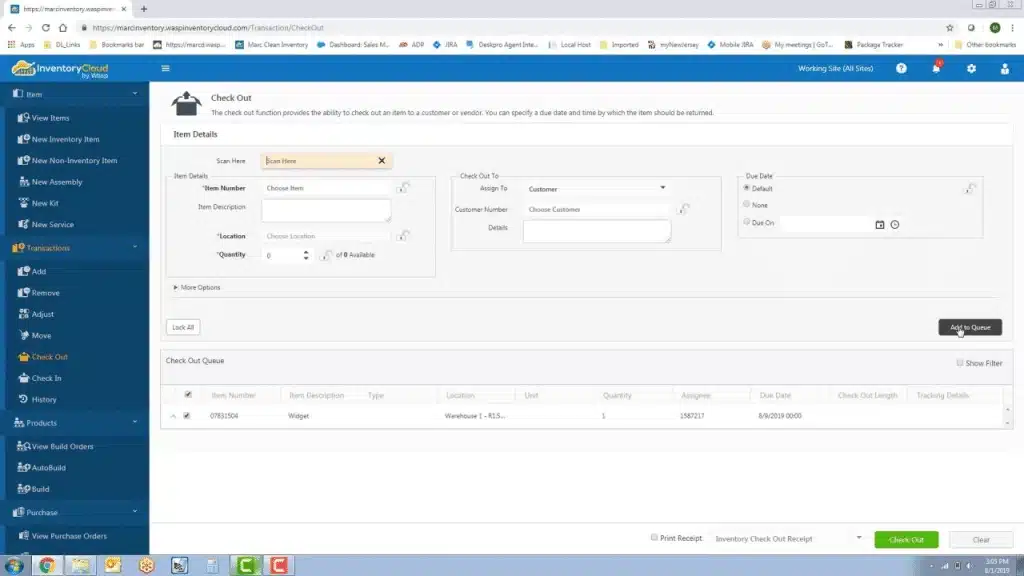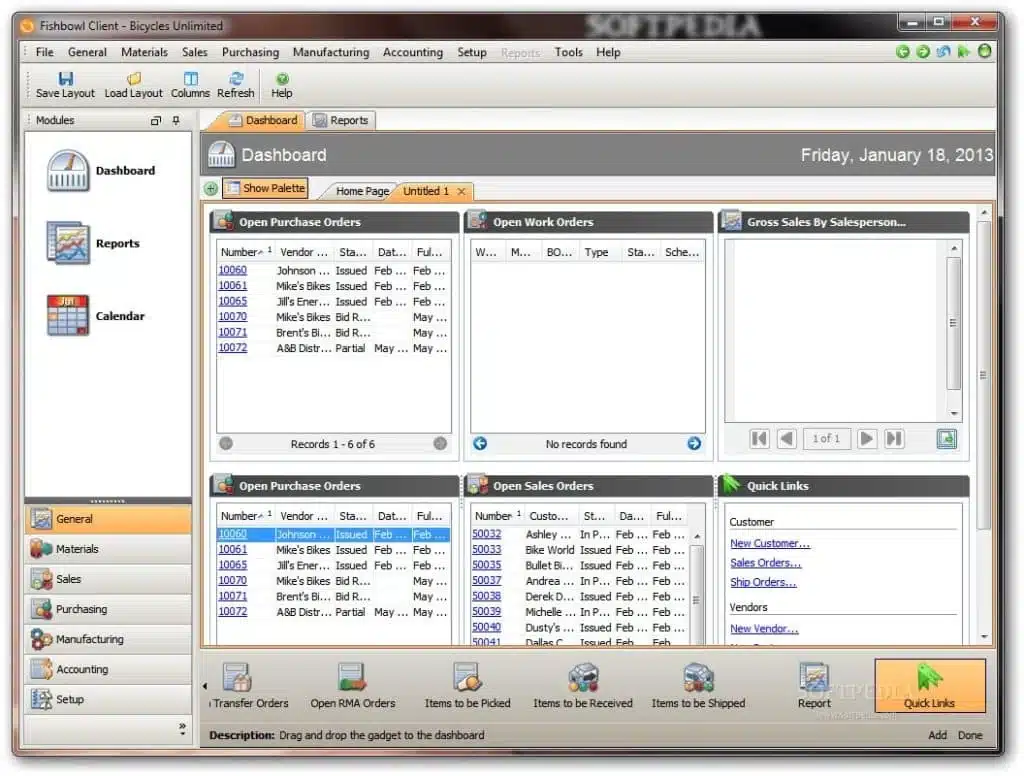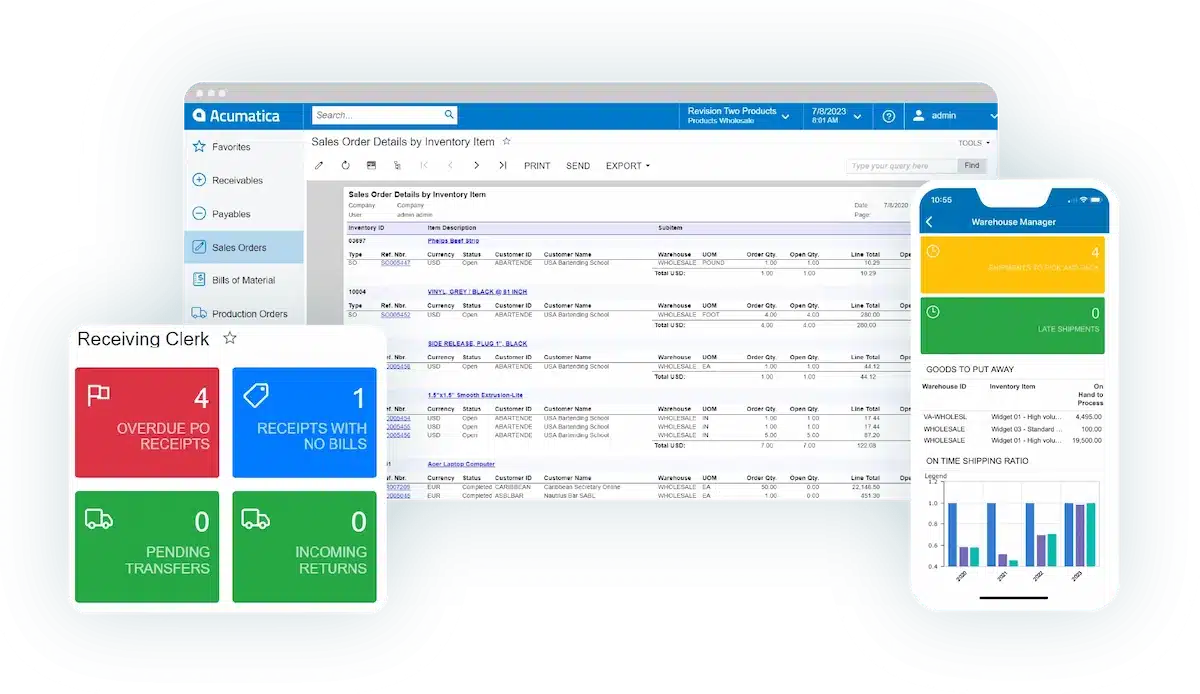The Warehouse Management System (WMS) has become essential for modern businesses, yet many Filipino companies still rely on manual warehouse management, consuming valuable time and effort. This outdated approach makes stocktaking more challenging and increases the risk of workplace accidents that could cause serious injuries to workers.
Managing complex inventory data, stock placement, and stocktaking manually can be overwhelming. If this sounds familiar, it’s time to upgrade to a smarter solution.
HashMicro’s Warehouse Management Software continuously improves to streamline inventory processes, enhance accuracy, and optimize warehouse space. With real-time tracking and automated data management, it reduces errors and boosts efficiency, helping businesses operate more smoothly.
Naghahanap pa rin ng tamang sistema? Alamin ang 19 pinakamahusay na warehouse management systems sa Pilipinas para sa 2025 upang mahanap ang pinakaangkop para sa iyong negosyo.
Key Takeaways
|
Table of Contents

Top Warehouse Management Systems in 2025
- HashMicro: Best for comprehensive ERP and WMS integration
- Brightpearl: Best for retail and wholesale inventory management
- Infor: Best for scalable solutions in complex supply chains
- Microsoft Warehouse: Best for seamless integration with Microsoft Dynamics
- Zoho: Best for small to mid-sized businesses needing customizable WMS
- Focus Softnet: Best for multi-location inventory management
- Momentum Warehouse: Best for real-time warehouse visibility and control
- Oracle: Best for large enterprises with global supply chain needs
- Logiwa: Best for high-volume e-commerce and 3PL fulfillment
- Epicor: Best for manufacturing and distribution efficiency
What is Warehouse Management Systems?
A warehouse management system (WMS) is software to manage warehouse operations from inbound receiving to outbound shipping. It helps manage warehouses, distribution center (DC), or fulfillment center (FC) operations by providing real-time visibility inventory across storage units and in transit.
An effective Warehouse Management System (WMS) simplifies and optimizes all warehouse operations, including receiving, storage, picking, packing, shipping, inventory tracking, and replenishment.
By providing a single, unified interface, WMS enables seamless management of these activities. Additionally, WMS integrates with various other tools and technologies, such as barcode scanning, RFID labeling, robotics, augmented reality wearables, transportation management systems, ERP, and logistics software
Need to know!
AI-driven warehouses move faster and smarter! Hashy AI automates stock updates, prevents overstocking, and ensures seamless order fulfillment. Say hello to efficiency and try it now!

Get a Free Demo Now!
5 Benefits of Warehouse Management Systems
A robust digital warehouse management system is vital for any business managing on-hand inventory, helping to reduce costs and improve efficiency in multiple areas. Here are the benefits of WMS:
1. Optimizes warehouse flow and space
A WMS improves warehouse layout by slotting products in optimal locations based on demand, size, and storage requirements.
If you handle perishable or date-sensitive material, warehouse management software will ensure correct rotation utilizing FIFO, LIFO, or FEFO regulations. It may even identify things that require faster movement—whether through priority selection or a sales push in order to decrease waste and mitigate revenue loss.
Some systems go even further, using computer simulations to optimize warehouse layouts, estimating the best placement for pallets, shelves, and equipment.
2. Real-time visibility
A warehouse management system (WMS) provides real-time inventory visibility by using barcoding, RFID, sensors, and other monitoring technologies to track products, as they enter, transit through, and eventually depart the warehouse.
Clear visibility into inventory levels enables more exact demand projections and aids just-in-time inventory procedures in reducing surplus stock. As a result, firms that handle recalls or compliance-heavy items have faster, more consistent reaction times.
3. Improves labor management
Warehouse management software improves labor management by anticipating worker needs, setting schedules, and assigning jobs based on skill level, proximity, and equipment availability. It reduces wasteful transit time within the warehouse, so the staff can focus on high-impact jobs.
4. Traceable materials
A WMS system provides complete traceability by tracking inventory using lot, batch, and serial numbers. When supplies arrive, the system provides them with unique identifiers that associate each item with a specific lot or batch. As inventory moves through the warehouse, WMS automation records every transaction.
When items are dispatched, the system records which batch or serial number was used, resulting in a clear audit trail. This procedure is critical for quality control, recalls, and compliance, as organizations can swiftly trace faulty products back to their source.
5. Improved operational efficiency
A Warehouse Management System (WMS) makes your warehouse work better by automating tasks from the moment goods arrive until they’re shipped out.
Additionally, a study dissecting cost-benefit analysis of implementing an ERP system in shoe factories in the Philippines reveals a high benefit-cost ratio of 1.85 in the first month and 10.4 in subsequent months, which shows that this system has a promising prospect.
19 Top Warehouse Management Systems in the Philippines
Choosing the best warehouse management software for your business can be difficult, given the number of systems on the market. Therefore, to solve your confusion, we present a list of the best warehouse management software in the Philippines.
Below, you’ll find a list of the 19 top warehouse management systems in the Philippines, which cover their features, strengths, and weaknesses.
1. HashMicro WMS
HashMicro is the top choice for a web-based warehouse management system (WMS) for businesses in the Philippines. This system can provide a significant boost for warehouse management, thanks to its advanced features and robust integration capabilities.
Why we recommend it: HashMicro excels in optimizing multi-warehouse operations, speeding up item picking, and cutting storage costs. It provides RFID automation and thorough tracking with barcodes, lot, and serial numbers, fitting various business needs.
More than 2000 clients in Southeast Asia, including the Philippines managed to transform their businesses with HashMicro’s cloud WMS. This vendor also offers a free demo and consultation with a professional team, so you can find out how this solution can improve the efficiency and profitability of your business.
Key Features
- RFID warehouse rack stock automation
- Barcode, lot, and serial number tracking
- Cycle time analysis
- Stock optimizer per warehouse
- 3D view of stock location
- Removal strategy management
- Pick, pack, delivery 3-step route warehousing
- Comprehensive Reporting/Analytics
In addition to these features, HashMicro can connect with other modules and systems in the company, from accounting and finances to procurement management, to stock management. It helps with work order management, purchasing materials and other resources, managing stocks and assets, and sales activities efficiently.
| Pros | Cons |
|
|
Pricing
HashMicro offers customized pricing based on the specific needs and size of your business.
Suitable for
HashMicro’s Warehouse Management System Philippines offers a comprehensive ERP solution covering end-to-end business operations for businesses looking to enhance efficiency to manage multiple business branches and increase profitability.
2. Brightpearl WMS
Brightpearl WMS is designed for e-commerce, retail, and wholesale businesses looking to optimize warehouse operations. It offers barcode scanning, automated workflows, real-time inventory tracking, and efficient returns management.’
It ensures accurate stock tracking with partial counts by zone and real-time updates across sales channels. Businesses can ship faster using batch processing, optimized pick routes, and automated fulfillment for specific orders. However, pricing details aren’t available, so anyone interested should contact Brightpearl directly.
Key Features
- Order processing
- Receiving & put-away
- Picking and packing
- Warehouse management
- Reporting/Analytics
| Pros | Cons |
|
|
Pricing
Brightpearl offers a subscription-based pricing model, with costs varying based on factors such as the number of users, sales channels, and monthly order volume.
Suitable for
Brightpearl is perfect for omnichannel retailers, wholesalers, and e-commerce businesses needing a unified system for orders, inventory, and accounting.
3. Infor WMS
Infor WMS Software is cloud-based solution designed to optimize warehouse operations with AI, 3D visualization, and voice processing. It provides real-time inventory tracking down to the bin level. Moreover, configurable rotation rules help reduce obsolescence, while LPN tracking enhances visibility.
This platform also schedules and manages B2B, B2C, and 3PL waves from a single warehouse. Businesses can enhance services with kitting, bundling, and custom labeling.
Key Features
- Label printing
- Inspection management
- Labor management
- Backorder management
- Barcode
| Pros | Cons |
|
|
Pricing
Pricing for Infor WMS varies based on factors such as company size, specific requirements, and chosen deployment model.
Suitable for
Infor is designed for high-volume industries like food and beverage, manufacturing, logistics, and retail, requiring customizable software.
4. Microsoft WMS
The Warehouse Management module in Microsoft 365 is Software as a Service (SaaS) that helps manufacturing, distribution, and retail businesses optimize their warehouse operations.
It offers a variety of features to ensure efficient facility management at all times. Fully integrated with key business processes, it connects seamlessly with transportation, manufacturing, quality control, purchasing, transfers, sales, and returns.
As of October 1, 2024, the pricing for this application is $210 per user per month. The Essentials plan (for SMEs) is priced at $70 per user per month, while the Premium plan, which offers additional capabilities, is $100 per user per month, although regional prices may vary.
Key Features
- Full batch and serial item support
- Multiple picking strategies
- Nex-gen barcode scanner
- Pallet/container types for warehouse processes
- Label printing and label routing with Zebra ZPL support
- Business intelligence integration into Power BI
| Pros | Cons |
|
|
Pricing
Microsoft’s Warehouse Management System is part of the Dynamics 365 Supply Chain Management suite. Pricing is subscription-based, starting at $180 per user per month. Additional costs may apply depending on specific requirements and add-ons.
Suitable for
Organizations with a mobile workforce benefit from Microsoft 365’s cloud-based productivity tools and real-time collaboration.
5. Zoho WMS
Zoho Warehouse Management System is comprehensive software designed to streamline and optimize warehouse operations for businesses in the Philippines. Its comprehensive features help businesses manage their warehouses, transfer stock between them, and generate reports for better insights.
Key Features
- Purchasing
- Invoicing
- Warehouse management
- Order fulfillment
- Barcoding
| Pros | Cons |
|
|
Pricing
Zoho Inventory offers a range of pricing plans to accommodate businesses of various sizes and needs. They provide a free plan suitable for startups and small businesses, as well as several paid plans with additional features and higher usage limits.
Suitable for
Zoho Inventory is ideal for e-commerce businesses on Shopify, Amazon, or eBay, and retailers with multiple locations needing real-time order, stock, and shipping management.
6. Focus Softnet WMS
Focus WMS is a warehouse management system for businesses in the Philippines for planning and overseeing storage, logistics, distribution, and supply chain. The software’s user-friendly interface, speed, accuracy, and cost-effectiveness improve logistics performance and fulfillment for organizations.
Additionally, it is equipped with advanced technology to support warehouse operations of all sizes.
Key Features
- Warehouse management
- Order processing
- Labor management
- Receiving & put-away
- Picking & packing management
| Pros | Cons |
|
|
Pricing
Focus Softnet offers customized pricing for its Warehouse Management System (WMS) solutions, tailored to meet the specific needs of each business.
Suitable for
Focus WMS is ideal for high-volume 3PL providers in food, automotive, pharma, and electronics needing advanced warehousing.
7. Momentum WMS
Momentum is a WMS software tailored to optimize warehouse operations for industries in the Philippines. With features like order processing and warehouse optimization, it provides real-time visibility into the warehouse conditions for enhanced efficiency.
Furthermore, Momentum also has an array of hardware selections to help businesses with managing their warehouses.
Key Features
- Barcode / RFID
- Labor management
- Receiving & put-away
- Order picking & packing
- Warehouse management
| Pros | Cons |
|
|
Pricing
Honeywell Intelligrated, the provider of Momentum Warehouse Management System, offers customized pricing based on the specific needs and scale of your operations.
Suitable for
Momentum is ideal for e-commerce fulfillment centers handling high order volumes, offering automated warehouse execution for order fulfillment and logistics.
8. Oracle WMS
Oracle Warehouse Management (WMS) software is designed to optimize and automate Philippine warehouse operations. It provides real-time visibility into stock levels, locations, and movements, thereby helping businesses streamline their supply chain processes.
Key Features
- Procurement management
- Materials management
- Order processing
- Purchasing
- Maintenance management
| Pros | Cons |
|
|
Pricing
Oracle Fusion Cloud’s pricing varies based on the specific services and modules selected, as well as the size and requirements of your organization. While some sources indicate that pricing starts at approximately $2,000 per month.
Suitable for
Oracle Fusion Cloud Warehouse Management is ideal for large B2B and B2C enterprises needing an integrated warehousing solution.
9. Logiwa WMS
Logiwa logistic management system is supply chain management software tailored for e-commerce businesses, offering connectivity with various third-party tools including e-commerce platforms, accounting software, and marketplaces.
It ensures real-time synchronization, order routing, and features an open API and automated routing. Logiwa’s built-in automation rules facilitate efficient order fulfillment, and rapid picking, packing, and shipping.
Key Features
- Warehouse management
- Reorder management
- 3PL management
- Order fulfillment
- Barcode / RFID
| Pros | Cons |
|
|
Pricing
Logiwa offers tailored pricing plans to accommodate various business needs, including options for B2C, DTC, and 3PL fulfillment operations.
Suitable for
Logiwa WMS is designed for DTC companies, 3PL providers, and e-commerce fulfillment with high-volume, high-velocity needs.
10. Epicor Kinetic WMS
Epicor Kinetic is a cloud-based Warehouse Management System (WMS) for managing nonperishable products in warehouse environments. It offers a range of features, including supply tracking, order processing, and warehouse optimization. Moreover, Epicor Kinetic provides real-time visibility into stock levels and locations, helping businesses enhance efficiency and accuracy in their operations.
Key Features
- Barcode / RFID
- Order management
- Picking & packing
- Receiving & putaway
- Workforce management
| Pros | Cons |
|
|
Pricing
Epicor Kinetic offers flexible pricing tailored to the specific needs of each organization.
Suitable for
Manufacturing and distribution companies seeking efficient inventory management and streamlined supply chain operations.
11. PALMS WMS
PALMS™ Smart WMS software, developed by Technoforte, is a complete warehouse management system that enhances warehouse operations and boosts stock precision. Its efficient space and resource utilization, along with increased customer retention, have made it a top pick for businesses managing stock and distribution centers.
Additionally, the software offers advanced functionalities such as automated location management, specified put-away and pick strategies, and real-time stock visibility.
Key Features
- 3PL Management
- Warehouse Management
- Cross Docking
- Picking & Routing
- Order Fulfillment
| Pros | Cons |
|
|
Pricing
PALMS Smart WMS offers flexible deployment options, including on-premises and cloud-based solutions, to cater to diverse business needs.
Suitable for
Businesses of all sizes seeking efficient inventory management and streamlined warehouse operations.
12. WASP Barcode Technologies WMS
Wasp Barcode Technologies provides a cloud-based system for managing stock that supports multiple sites and is compatible with iOS and Android devices. It sends real-time alerts for low stock and expiring items. It is recognized for its customizable reports and detailed control over stock. Additionally, it provides mobile applications for iOS and Android devices, enabling users to perform stock audits from anywhere.
Key Features
- Supplier management
- Reporting / Analytics
- Warehouse management
- Retail stock management
- Reorder management
| Pros | Cons |
|
|
Pricing
WASP Barcode Technologies offers a range of products, including barcode scanners, printers, and inventory management software. Pricing varies depending on the specific product and its features.
Suitable for
Small to mid-sized businesses looking for efficient inventory tracking and warehouse management solutions.
13. Aptean WMS
Aptean Warehouse Management Software offers flexible solutions for Philippine businesses seeking comprehensive supply chain visibility. Available in the cloud or on-premise, Aptean WMS software provides real-time, 360-degree views of warehouse operations. This feature makes it an adaptable solution for diverse business requirements.
Key Features
- Work order management
- Barcode / RFID
- Purchasing
- Invoicing
- Financial management
| Pros | Cons |
|
|
Pricing
Aptean offers customized pricing for its Warehouse Management System (WMS) solutions, tailored to meet the specific needs of each business.
Suitable for
Mid-sized to large enterprises seeking scalable warehouse management solutions to optimize inventory control and order fulfillment.
14. Fishbowl WMS
Fishbowl Warehouse management system is a solution designed for QuickBooks, empowering businesses to manage their order processes efficiently. It integrates with software and hardware solutions to automate diverse operations, enabling manufacturers to closely track product levels in each of their locations.
Key Features
- Purchasing
- Location control
- Reorder management
- Order entry
- Warehouse management
| Pros | Cons |
|
|
Pricing
Fishbowl offers various product bundles to cater to different business needs.
Suitable for
Growing businesses needing streamlined inventory control and efficient order management.
15. Acumatica WMS
Acumatica software is a versatile system for managing advanced warehouse needs across various industries in the Philippines. It offers efficient control over operations like stock control and order fulfillment. With real-time visibility and advanced reporting, Acumatica Philippines warehouse management software helps streamline processes and make informed decisions. As a result, it is an ideal choice for businesses seeking efficient warehouse management.
Key Features
- Order fulfillment
- Automatic tracking
- Stock movement
- Barcodes and labels
- Warehouse management
| Pros | Cons |
|
|
Pricing
Acumatica’s pricing model is tailored to your business needs, focusing on the applications you require and your projected resource consumption, rather than charging per user.
Suitable for
Medium to large businesses seeking scalable solutions for inventory management, order processing, and real-time visibility.
16. Cin7 WMS
Cin7 is a cloud-based WMS known for its seamless integration capabilities with various sales channels. Established in 2012, Cin7 has grown rapidly, offering a unified platform for inventory management, order processing, and warehouse control. WMS systems supports multi-location warehousing and provides real-time inventory tracking.
Key Features
- Multi-warehouse management
- Real-time inventory tracking
- Automated order processing
- Integration with e-commerce platforms
| Pros | Cons |
| User-friendly interface | Learning curve for advanced features |
| Excellent integration options | Limited customization in reports |
| Reliable customer support | Occasional sync delays |
| Detailed inventory analytics | Higher cost for advanced modules |
Pricing
Cin7 Core starts at $349 per month, while Cin7 Omni offers customized pricing for advanced enterprise needs. For a detailed quote, contact Cin7 directly.
Suitable for
Retailers, wholesalers, and e-commerce businesses looking to streamline inventory management and order fulfillment across multiple sales channels.
17. ShipHero WMS
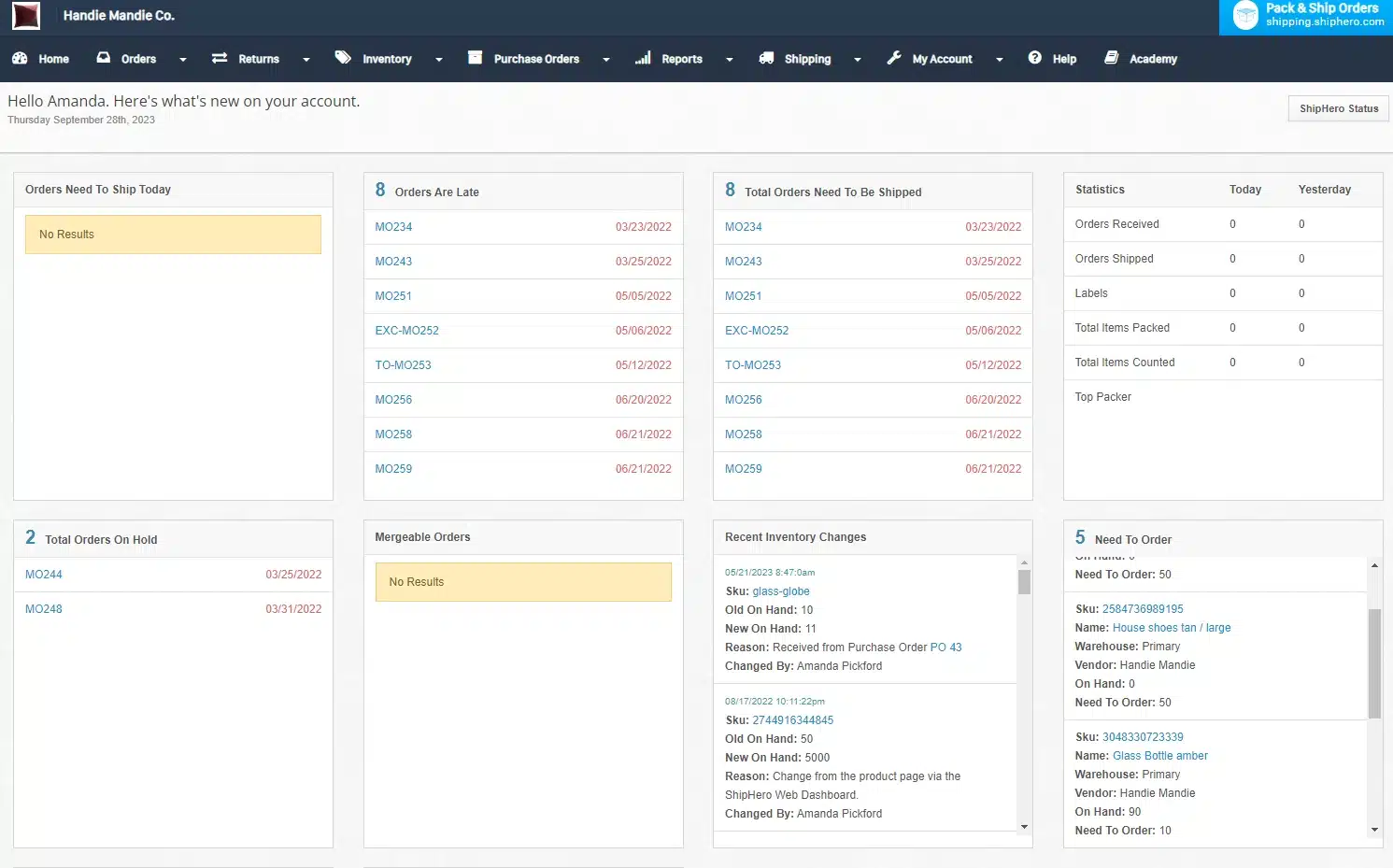
Key Features
- Automated shipping and order management
- Real-time inventory sync
- Batch picking and packing
- Returns management system
| Pros | Cons |
| Highly intuitive UI | Limited offline capabilities |
| Seamless integration with major platforms | Limited advanced reporting options |
| Responsive customer support | Complex setup for multi-location warehouses |
| Strong automation capabilities | No on-premise version available |
Pricing
ShipHero’s pricing starts at $1,995 per month for the Standard Plan and $2,145 per month for the 3PL Plan. Customized pricing is available for enterprise solutions. For the most accurate details, contact ShipHero directly.
Suitable for
E-commerce retailers and 3PL providers seeking efficient order fulfillment and inventory management solutions.
18. Blue Yonder WMS
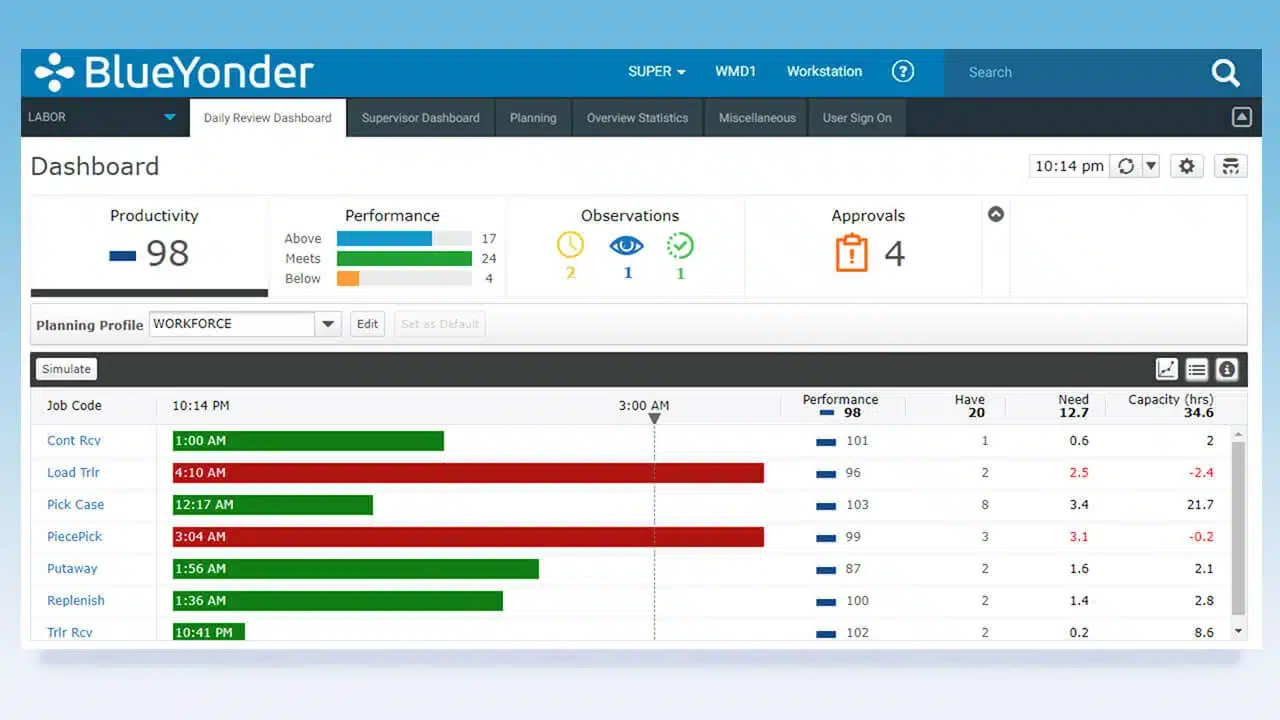
Key Features
- AI-driven demand forecasting
- Flexible workflow management
- Real-time labor and task management
- Advanced analytics and reporting tools
| Pros | Cons |
| Extensive customization options | Steep learning curve for new users |
| Strong integration with ERP systems | Requires dedicated IT support for setup |
| Robust analytics and forecasting | High resource consumption |
| Scalable for large operations | Lengthy implementation time |
Pricing
Blue Yonder offers customized pricing for its Warehouse Management System (WMS), tailored to the specific needs and scale of each business.
Suitable for
Large enterprises and retailers seeking advanced supply chain and warehouse management solutions to optimize inventory, logistics, and order fulfillment.
19. Manhattan Associates WMS
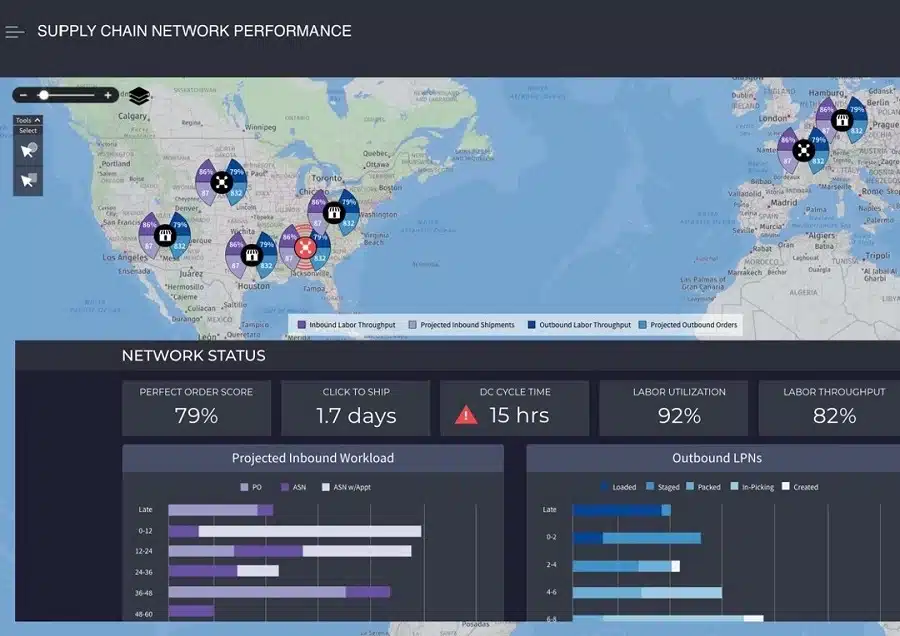
Key Features
- Advanced WMS systems labor
- AI-driven order fulfillment
- Cross-docking capabilities
- Multi-channel distribution support
| Pros | Cons |
| Highly customizable workflows | Complex interface for beginners |
| Extensive third-party integrations | Lengthy training required |
| Scalable to accommodate growth | Expensive support packages |
| Detailed tracking and analytics | High initial investment |
Pricing
Manhattan Associates offers tailored pricing for their Warehouse Management System (WMS) solutions, designed to meet the specific requirements of each business.
Suitable for
Large enterprises and retailers needing advanced supply chain and warehouse management solutions.
Why is Warehouse Management Systems Important?
Businesses need Warehouse Management Systems (WMS) to streamline their operations and boost efficiency. Here’s why:
- Better inventory control: Real-time tracking prevents overstocking and errors.
- Faster operations: Logistic management system automates picking, packing, and shipping.
- Cost savings: Efficient space use reduces storage costs and prevents losses.
- Improved order fulfillment: Accurate processing leads to quicker deliveries.
- Informed decisions: Data insights from warehouse management system software help optimize warehouse performance.
Key Features to Look For When Choosing a WMS
With so many warehouse management software options out there, it’s crucial to choose the right one for your warehouse. Picking the wrong WMS systems can lead to inefficiencies, failure to meet requirements, and ultimately, delays and reduced productivity.
A good warehouse management system should have these features to help you get the most out of your warehouse operations:
- Receiving & Put-Away: WMS streamlines the receiving and put-away process using business rules and warehouse flow optimization. It integrates with RFID and barcode technology to validate and reconcile incoming items against digital purchase orders, automating label printing for easier storage.
- Inventory Management: Provides real-time inventory visibility across warehouses, in transit, and in-stores. It uses barcodes and RFID for tracking, supports cycle counting, and offers insights to forecast demand and optimize stock levels.
- Order Picking, Packing & Fulfillment: WMS optimizes storage, retrieval, and packing through RF scanning, robotics, and algorithms. It supports picking techniques like batch, zone, and cross-docking.
- Shipping: Integrates with logistics tools to automate bills of lading, packing lists, and shipment notifications. Real-time tracking ensures deliveries are accurate and timely.
- Labor Management: Tracks worker productivity and costs in real time. Supports task interleaving to reduce travel and dead time, helping plan and schedule efficiently.
- Yard & Dock Management: Guides truck drivers to the correct docks and supports cross-docking for faster order fulfillment, especially for perishable goods.
- Warehouse Metrics & Analytics: Automatically collects data for accurate reporting on shipping times, inventory accuracy, and operational costs. Visual analytics provide actionable insights for performance improvement.
- Lot or batch number tracking: For Philippine companies operating in the pharmaceuticals and food distribution sectors, warehouse management requires thorough recording and management of Lot/Batch numbers, expiration dates, and manufacturing dates for items.
Conclusion
Warehouse management is not just a standalone process, but it also involves other important aspects, such as procurement, stock management, as well as finances. Therefore, a good WMS System should be able to integrate well with those modules to ensure a smooth supply chain process.
One of the top warehouse management systems in the Philippines is HashMicro. Tailored for the intricacies of warehouse operations, HashMicro’s Warehouse Management Software is engineered to streamline processes with its robust features. Its high level of customization makes it suitable for various warehouse sectors.
Furthermore, HashMicro’s warehouse management system software seamlessly integrates with other modules like accounting, procurement, and stock, compiling all necessary information into one platform for a smoother workflow.
Are you keen on exploring the advantages of HashMicro for your warehouse management needs? Take advantage of our free demo today and witness firsthand how this software can enhance your warehouse operations!
FAQ About Warehouse Management Systems
-
What are the types of warehouse management systems?
There are four main types of Warehouse Management System (WMS) solutions, each designed to meet specific business needs: Standalone, ERP Module, Cloud-Based, and Supply Chain Module. These solutions differ in their features, integration capabilities, and suitability for various industries and business sizes.
-
What distinguishes a WMS from an ERP?
Warehouse management software is tailored to enhance your warehouse operations, while ERP software is intended to automate processes throughout your entire business, including marketing and sales, human resources, customer service, procurement, inventory, and financial management.
-
What is the latest trend in WMS?
The latest trends in warehouse management encompass robotics, inventory transportation, fleet management, and the Internet of Things (IoT).





